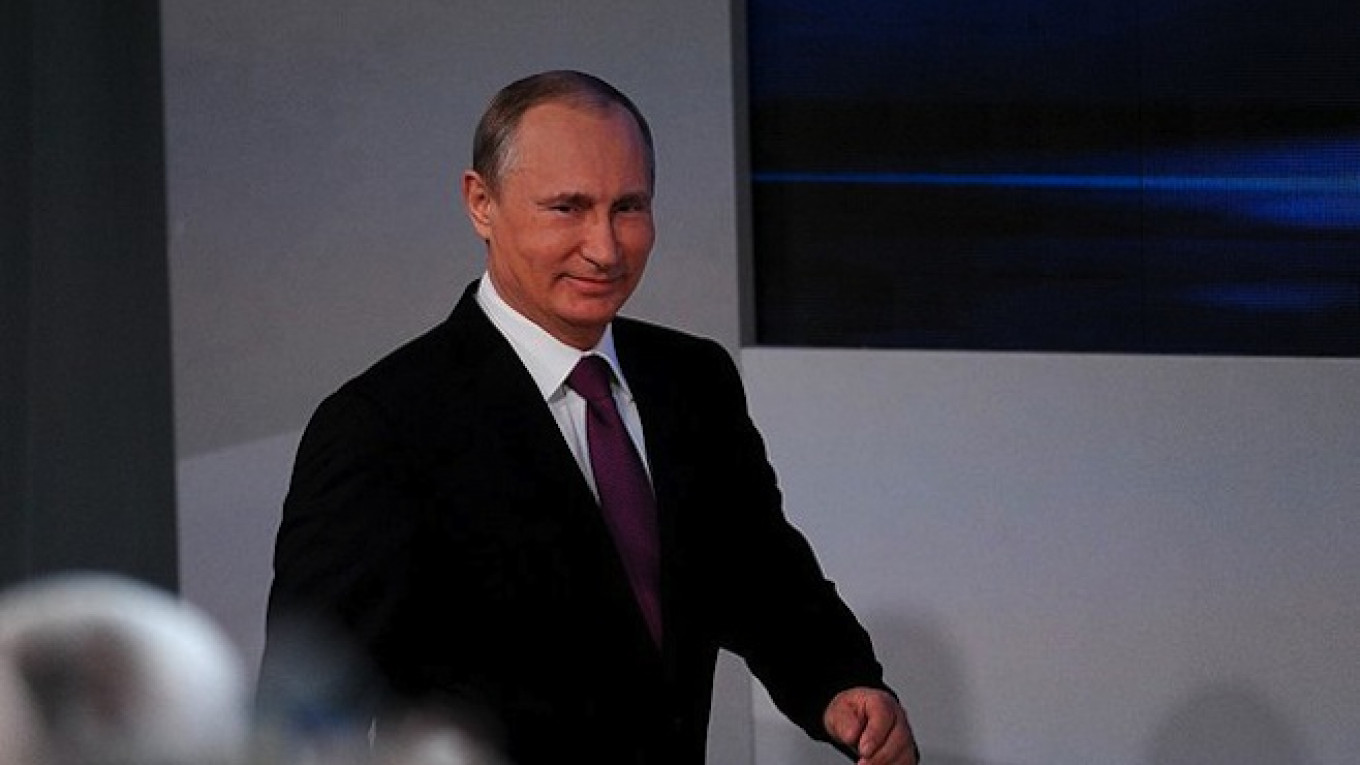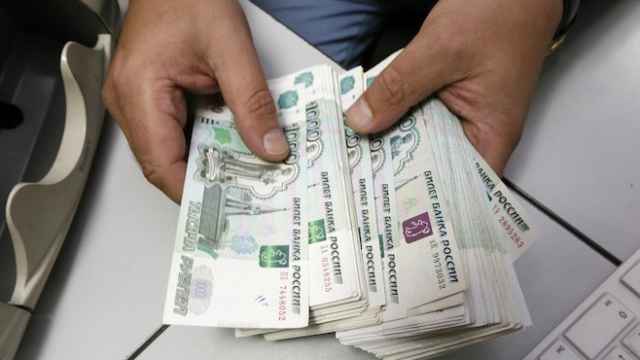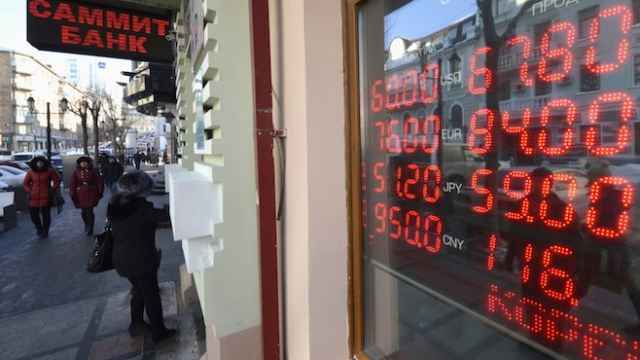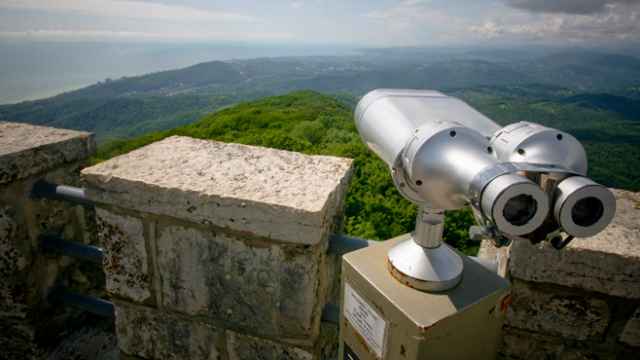President Vladimir Putin said Thursday that Russia's economy would inevitably rebound after the ruble's dramatic slide this year but offered no remedy to a deepening financial crisis.
Under pressure to show he has a plan to fix the economy, Putin told an end-of-year news conference the actions of the Central Bank and government had been "adequate" in a crisis he blamed on external factors.
But hinting at internal divisions, he said more measures were needed and the Central Bank should have halted foreign exchange interventions to support the ruble sooner. Earlier, more decisive action by the Central Bank, he implied, might have made this week's big interest rate rise unnecessary.
The economy is heading into recession in what one minister called a "perfect storm" of low oil prices, Western sanctions in the Ukraine crisis and global economic problems. The ruble has fallen about 45 percent against the dollar this year.
"If the situation develops unfavorably, we will have to amend our plans. Beyond doubt, we will have to cut some [spending]. But a positive turn and emergence from the current situation are inevitable," Putin said.
"The growth of the global economy will continue and our economy will rebound from the current situation," he said, sitting at a large desk and looking confident as he spoke to a studio audience and live on television.
He said Russia must diversify its economy to reduce dependence on oil, its major export and a key source of state income, and a recovery could start at some point next year.
But he stuck largely to broad promises rather than going into details and announced no major new proposals. He has said many times during 15 years in power that he will reduce Russia's reliance on energy exports but has failed to do so.
The ruble slipped as he spoke, moving to about 3 percent weaker on the day. The bank increased its key lending rate by 6.5 percentage points to 17 percent on Tuesday, and has spent more than $80 billion trying to shore up the ruble this year, but to little avail.
Heads to Roll?
Analysts said Putin's assessment of the government and Central Bank's performance was lukewarm and could indicate that heads would roll.
"All this implies pretty big divisions within the administration as to how to react to the crisis and pressure on the ruble," Timothy Ash, head of emerging market research at Standard Bank in London, said in a note.
A prominent opponent, former Prime Minister Mikhail Kasyanov, said the crisis showed Putin had mismanaged the economy and his problems would increase because prices are expected to surge next year because of the ruble's weakness.
"Russia is going into decline," Kasyanov said late on Wednesday, suggesting Putin should accept that "he needs an exit strategy" to leave power.
Economy Minister Alexei Ulyukayev said in a newspaper interview the Western sanctions were likely to last "a very long time" and Russia was paying the price for failing to carry out structural reforms, describing events as "the perfect storm".
But Putin said: "Under the most unfavorable external economic scenario, this situation may go on for about two years. But it may also start improving in the first quarter, in the middle, at the end of the next year."
Opinion polls show Putin has high popularity ratings since annexing the Crimea peninsula from Ukraine in March, but the ruble's decline and Russia's slide towards recession could erode faith in Putin's ability to provide financial stability.
Asked about Ukraine, where Russia has irked the West by backing separatists fighting government forces in the east, Putin said Moscow wanted to restore political unity and denied any link between the conflict and Russia's economic problems.
He said he wanted the conflict, in which more than 4,700 people have been killed, resolved by political means. But he criticized NATO over its eastward expansion following the fall of the Berlin Wall and said Kiev had been wrong to use forces against the separatists.
A Message from The Moscow Times:
Dear readers,
We are facing unprecedented challenges. Russia's Prosecutor General's Office has designated The Moscow Times as an "undesirable" organization, criminalizing our work and putting our staff at risk of prosecution. This follows our earlier unjust labeling as a "foreign agent."
These actions are direct attempts to silence independent journalism in Russia. The authorities claim our work "discredits the decisions of the Russian leadership." We see things differently: we strive to provide accurate, unbiased reporting on Russia.
We, the journalists of The Moscow Times, refuse to be silenced. But to continue our work, we need your help.
Your support, no matter how small, makes a world of difference. If you can, please support us monthly starting from just $2. It's quick to set up, and every contribution makes a significant impact.
By supporting The Moscow Times, you're defending open, independent journalism in the face of repression. Thank you for standing with us.
Remind me later.






